Filter by
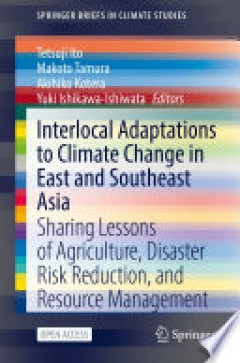
Interlocal Adaptations to Climate Change in East and Southeast Asia: Sharing …
This Open Access book’s main focus is agriculture and natural resource management, disaster risk reduction, and human resource development in the countries of East and Southeast Asia and Japan. Asia is one of the regions which is the most vulnerable to the impacts of climate change. More than sixty percent of the world’s people live in the region, making it the growth center of the world. A…
- Edition
- 3
- ISBN/ISSN
- 9783030812072
- Collation
- v, 164 p
- Series Title
- 164
- Call Number
- 363.73874095

Empire’s violent end : comparing Dutch, British, and French wars of decolo…
In Empire's Violent End, Thijs Brocades Zaalberg and Bart Luttikhuis, along with expert contributors, present comparative research focused specifically on excessive violence in Indonesia, Algeria, Vietnam, Malaysia, Kenya, and other areas during the wars of decolonization. In the last two decades, there have been heated public and scholarly debates in France, the United Kingdom, and the Netherl…
- Edition
- 1
- ISBN/ISSN
- 9781501764165
- Collation
- 246p
- Series Title
- -
- Call Number
- 325.309405 EMP b

Southeast Asian anthropologies: national traditions and transnational practices
Anthropology is a flourishing discipline in Southeast Asia. This book makes visible the development of national traditions and transnational practices of anthropology across the region. The authors are practising anthropologists with decades of experience in the intellectual traditions and institutions that have taken root in the region. Three overlapping issues are addressed in these pages. Fi…
- Edition
- -
- ISBN/ISSN
- 9789813250093
- Collation
- xi, 335 pages ; 23 cm
- Series Title
- -
- Call Number
- 301.0959 SOU s
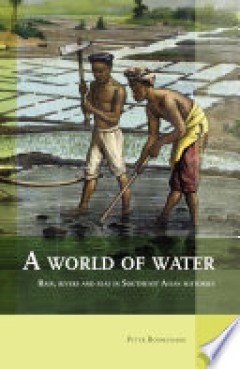
A world of water: Rain, rivers and seas in Southeast Asian histories
Water, in its many guises, has always played a powerful role in shaping Southeast Asian histories, cultures, societies and economies. This volume, the rewritten results of an international workshop, with participants from eight countries, contains thirteen essays, representing a broad range of approaches to the study of Southeast Asia with water as the central theme. As it was exposed to the se…
- Edition
- -
- ISBN/ISSN
- 9789004254015
- Collation
- vii, 368
- Series Title
- -
- Call Number
- 304.20959
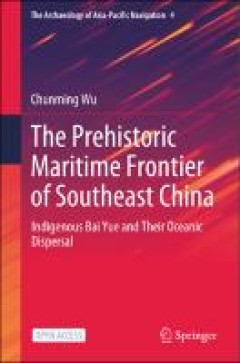
The prehistoric maritime frontier of Southeast China : indigenous Bai Yue and…
- Edition
- -
- ISBN/ISSN
- 9789811640797
- Collation
- xxiii, 264 pg; ill.
- Series Title
- -
- Call Number
- 931.01 THE
- Edition
- -
- ISBN/ISSN
- 9789811640797
- Collation
- xxiii, 264 pg; ill.
- Series Title
- -
- Call Number
- 931.01 THE
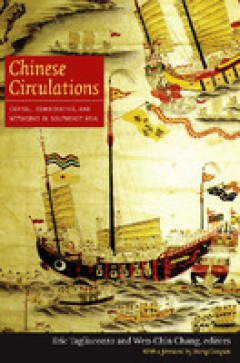
Chinese Circulation : Capital, Commodities, and Networks in Southeast Asia
Chinese merchants have traded with Southeast Asia for centuries, sojourning and sometimes settling, during their voyages. These ventures have taken place by land and by sea, over mountains and across deserts, linking China with vast stretches of Southeast Asia in a broad, mercantile embrace. Chinese Circulations provides an unprecedented overview of this trade, its scope, diversity, and complex…
- Edition
- 27
- ISBN/ISSN
- 9780822393573
- Collation
- xv, 509 . : ill
- Series Title
- -
- Call Number
- 382.0951059 CHI c
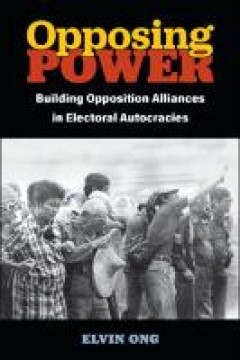
Opposing power : building opposition alliances in electoral autocracies
Opposing Power argues that perceptions of regime vulnerability and mutual dependency by opposition elites shape the building of opposition alliances. When electoral autocracies are consistently dominant, opposition parties eschew fully fledged alliances. At best, they allocate only one candidate to contest against the incumbent in each subnational electoral district to avoid splitting the oppos…
- Edition
- edision 2
- ISBN/ISSN
- 9780472133000
- Collation
- xiii. :313 p.
- Series Title
- -
- Call Number
- 322.4. OPP e
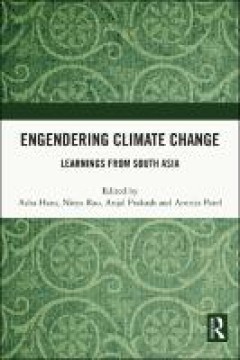
Engendering climate change : learnings from South Asia
"This book focuses on the gendered experiences of environmental change across different geographies and social contexts in South Asia and on diverse strategies of adapting to climate variability. The book analyzes how changes in rainfall patterns, floods, droughts, heatwaves, and landslides affect those who are directly dependent on the agrarian economy. It examines the socio-economic pressures…
- Edition
- -
- ISBN/ISSN
- 9781003142409
- Collation
- xx, 241p.
- Series Title
- -
- Call Number
- 363.738740654 HAN e
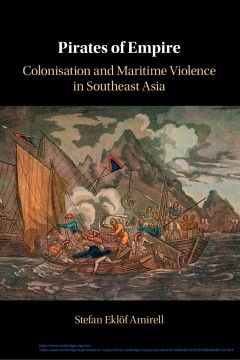
Pirates of empire : colonisation and maritime violence in Southeast Asia
The suppression of piracy and other forms of maritime violence was a keystone in the colonisation of Southeast Asia. Focusing on what was seen in the nineteenth century as the three most pirate-infested areas in the region - the Sulu Sea, the Strait of Malacca and Indochina - this comparative study in colonial history explores how piracy was defined, contested and used to resist or justify colo…
- Edition
- -
- ISBN/ISSN
- 9781108594516
- Collation
- ix, 266p. : ill.
- Series Title
- -
- Call Number
- 364.164 AMI p
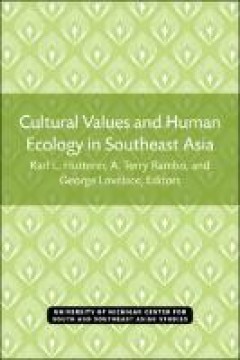
Cultural values and human ecology in Southeast Asia
Ecologists have long based their conceptual frameworks in the natural sciences. Recently, however, they have acknowledged that ecosystems cannot be understood without taking into account human interventions that may have taken place for thousands of years. And for their part, social scientists have recognized that human behavior must be understood in the environment in which it is acted out. Re…
- Edition
- -
- ISBN/ISSN
- 9780472902293
- Collation
- X, 417 p.
- Series Title
- Michigan Papers On South And Southeast Asia, 27
- Call Number
- 304.20959 CUL c
 Computer Science, Information & General Works
Computer Science, Information & General Works  Philosophy & Psychology
Philosophy & Psychology  Religion
Religion  Social Sciences
Social Sciences  Language
Language  Pure Science
Pure Science  Applied Sciences
Applied Sciences  Art & Recreation
Art & Recreation  Literature
Literature  History & Geography
History & Geography